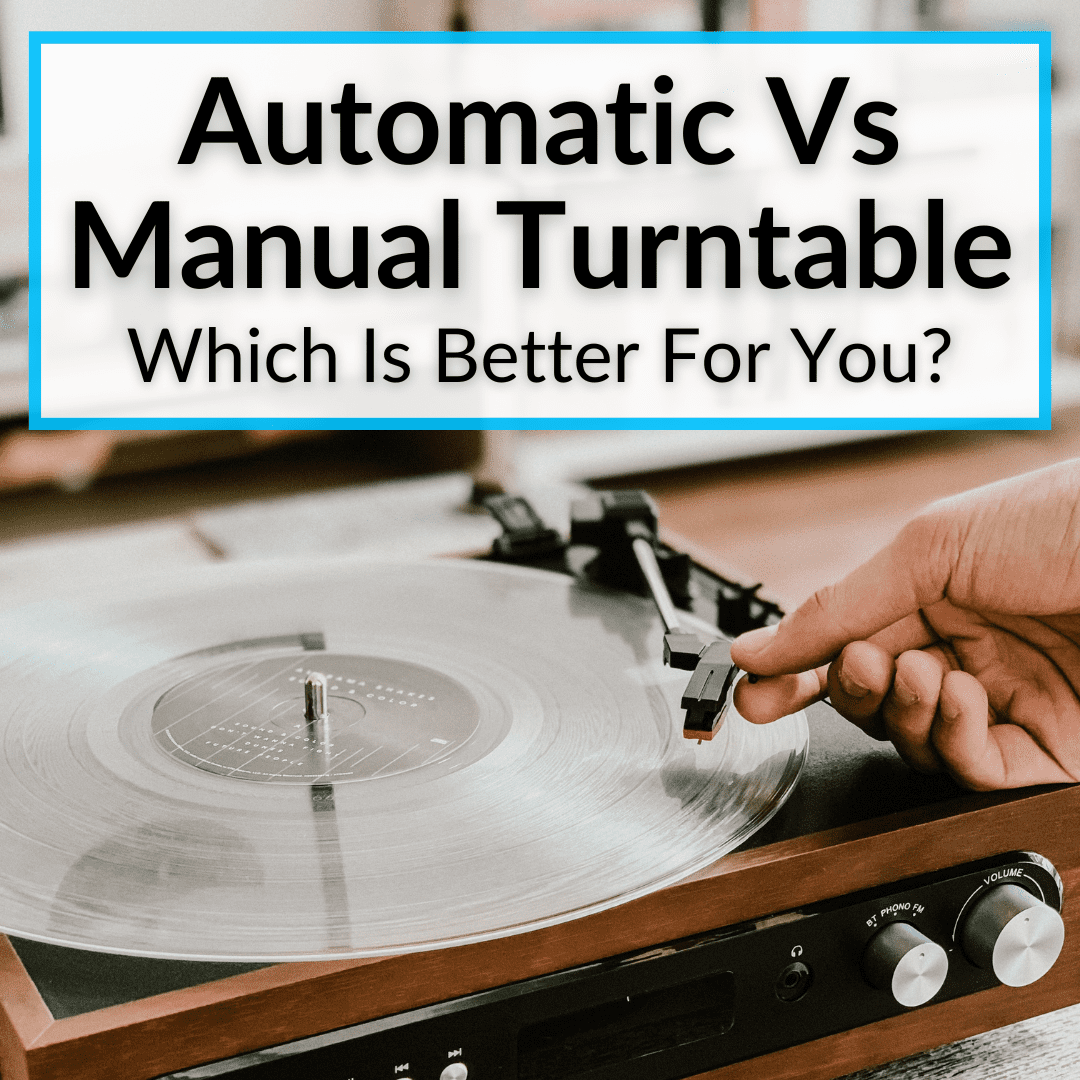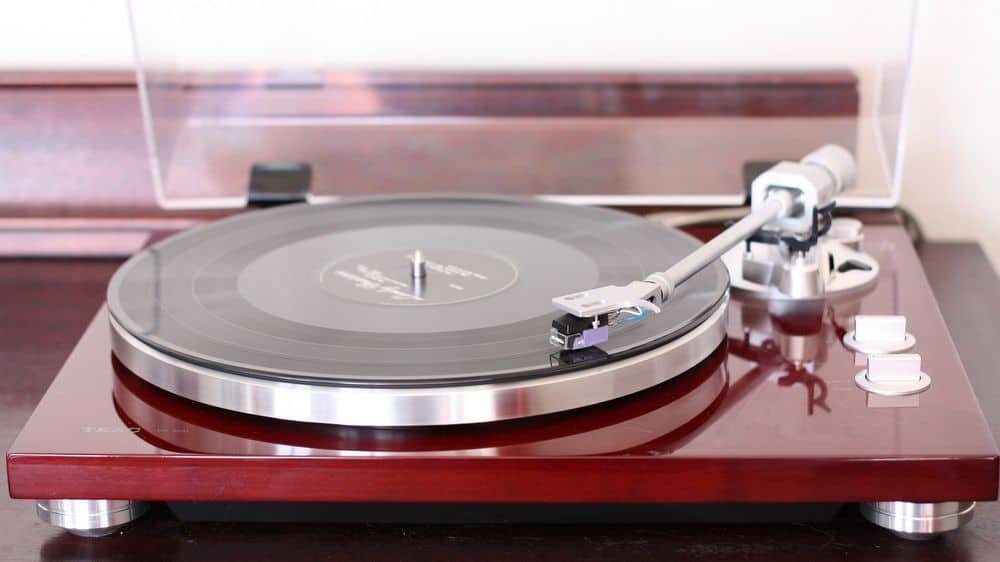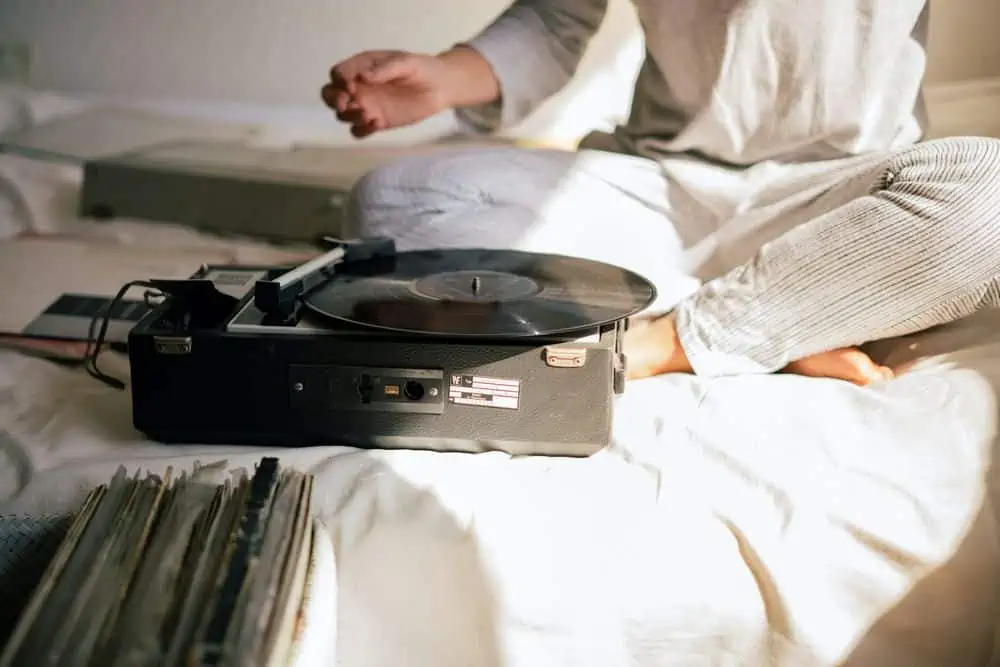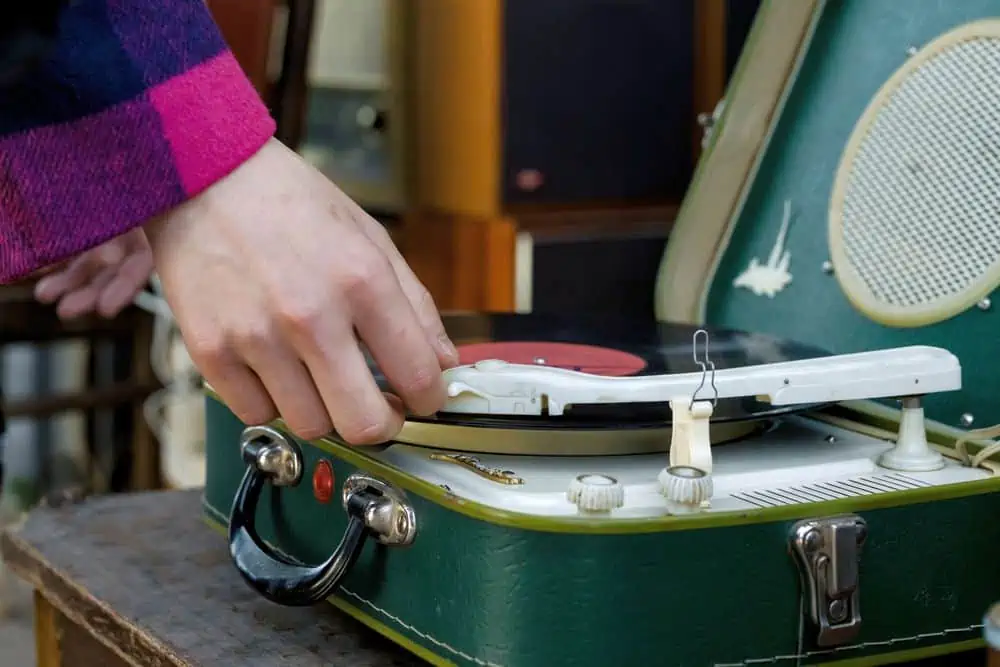
And it is the obvious one. Of course we will cover that.
But there are also a few other, less obvious, differences.
And one, especially, is key.
It is the reason most audiophiles strongly prefer one of these types of record players over the other.
Keep reading for a full comparison of automatic vs manual turntables. We will cover everything you need to know to decide which type is best for your needs.
Contents
- 1 Automatic Vs Manual Turntable
- 1.1 What Is An Automatic Turntable?
- 1.2 What Is A Manual Turntable?
- 1.3 Differences Between Automatic And Manual Turntables
- 1.4 Manual Vs Automatic Turntable: Similarities
- 1.5 Advantages Of Automatic Turntables
- 1.6 Advantages Of Manual Turntables
- 1.7 Who Should Get An Automatic Turntable (And Why)?
- 1.8 Who Should Get A Manual Turntable (And Why)?
- 2 Manual Vs Automatic Turntable: Final Thoughts
Automatic Vs Manual Turntable
We will begin our comparison of an automatica vs a manual turntable by taking a look at each one individually, before comparing them directly and looking at the differences and similarities Then we will talk about the advantages of each and figure out which one is right for you.
What Is An Automatic Turntable?

With an automatic turntable, a mechanical system will automatically lift the tonearm and lower it into the correct position to begin playing your record. Once the record has finished playing, the tonearm is automatically lifted again and returned to its original resting position.
You start this movement by the simple pressing of a button. With a fully automatic turntable, you should also have the option of selecting either a 7-inch or 12-inch record size, which causes the tonearm to swing the precise distance needed to find the beginning of your record.
What Is A Manual Turntable?
The process of moving the tonearm to the desired starting position on your record is different with a manual turntable. When playing records on a manual turntable, you must physically place the tonearm in the correct position on the run-in groove.
Once the record has finished playing, you would then need to return the tonearm back to its resting position, which will stop the record from spinning.
Differences Between Automatic And Manual Turntables
Aside from the key difference outlined above, there are a few other important factors to be aware of when selecting a new turntable to buy.
The first difference that you will notice is the price tag. In order for the tonearm to be automatically placed at the beginning of your record, an automatic turntable needs some extra parts compared to a manual turntable. These extra parts and mechanisms come with an added expense.
In addition to adding to the overall cost of your turntable, the added mechanisms—cogs, gears, and springs—needed to automatically raise and swing the tonearm can lead to a loss in sound quality. Audiophiles and vinyl junkies usually prefer a manual turntable, because there is less mechanical noise and interference with fewer moving parts.
Manual Vs Automatic Turntable: Similarities

To the casual home user, it may appear that automatic and manual turntables are very similar, with the exception of the way a record begins and finishes playing. And this is very true. From the moment the music starts until the moment the music finishes, there is very little difference between the two types of turntables.
The more discerning user will point out that an automatic turntable’s sound quality tends t be lower. However, if you have a high-end automatic turntable, the average listener probably won’t even notice a difference.
Advantages Of Automatic Turntables
The most obvious advantage of an automatic turntable is that the precision mechanics which move the tonearm will always lower the needle to the correct place. With manual turntables, you have to be careful to lower the tonearm into the correct position on the record’s run-in groove each time.
The fact that automatic turntables also lift the tonearm at the end of the record and return it to its resting position is another advantage of the automatic turntable.
With manual turntables, if you get distracted or forget about the record that is playing, the stylus will keep spinning in the inner grooves until you physically lift it and return it to its resting position.
Over time, this needless spinning in the record’s inner grooves will cause unnecessary wear and tear on your stylus, and you may have to fork out for a replacement more often than you would with an automatic turntable.
That makes automatic turntables invaluable, if you tend to leave yours running when you go to bed. Is it bad to leave a record player on all night? If it is not automatic, yes, due to the issue just described.
Advantages Of Manual Turntables

Audiophiles and serious home audio enthusiasts will point to the better sound quality of a manual turntable as being its main advantage. In addition to having fewer moving parts that can interfere with the quality of the sound produced, a manual turntable will also have a more solid base.
To house the mechanisms that automatically lift and lower the tonearm into position, an automatic turntable needs more hollow space inside the plinth. This hollow space allows for more reverberation and will have a negative effect on the overall sound quality.
Manual turntables are also easier to repair or upgrade. With fewer moving parts, a manual turntable is also less likely to malfunction. And even if something should fail, spare parts will be more readily available. And thanks to a simpler design, they will be easier to install when the need arises.
Who Should Get An Automatic Turntable (And Why)?
Casual record collectors or those looking to begin their journey into the world of vinyl will find an automatic turntable to be perfectly adequate. There is a wide range of automatic turntables on the market, and the mid- to high-end models will be able to deliver decent sound quality.
If you are looking for a turntable to play your vinyl as background music while working or cooking, an automatic turntable is perfect. The automatic turntable will lift the needle and return it to its resting position, saving wear and tear on the stylus, even if you are distracted or in the middle of something.
Who Should Get A Manual Turntable (And Why)?

More serious home audio enthusiasts, dedicated vinyl junkies, and those looking for the best possible performance from a turntable will prefer the added sound quality of a manual turntable. This increase in sound quality, due to manual turntables having fewer moving parts and a more solid plinth, overrides the added convenience of an automatic turntable.
The more serious home user will probably also expect to use their turntable more often than a casual user, and this increase in use will lead to an increase in wear and tear. Having a manual turntable with more replaceable and repairable parts is also more advantageous if your turntable is going to be spinning a serious amount of vinyl.
Manual Vs Automatic Turntable: Final Thoughts
While both an automatic and a manual turntable will deliver good sound quality, the more discerning listener will usually opt for the more solid sound of the manual turntable.
For standard home use, the added convenience that comes with a turntable that starts and finishes automatically will probably trump the need for near-perfect sound quality.
Leave a Reply